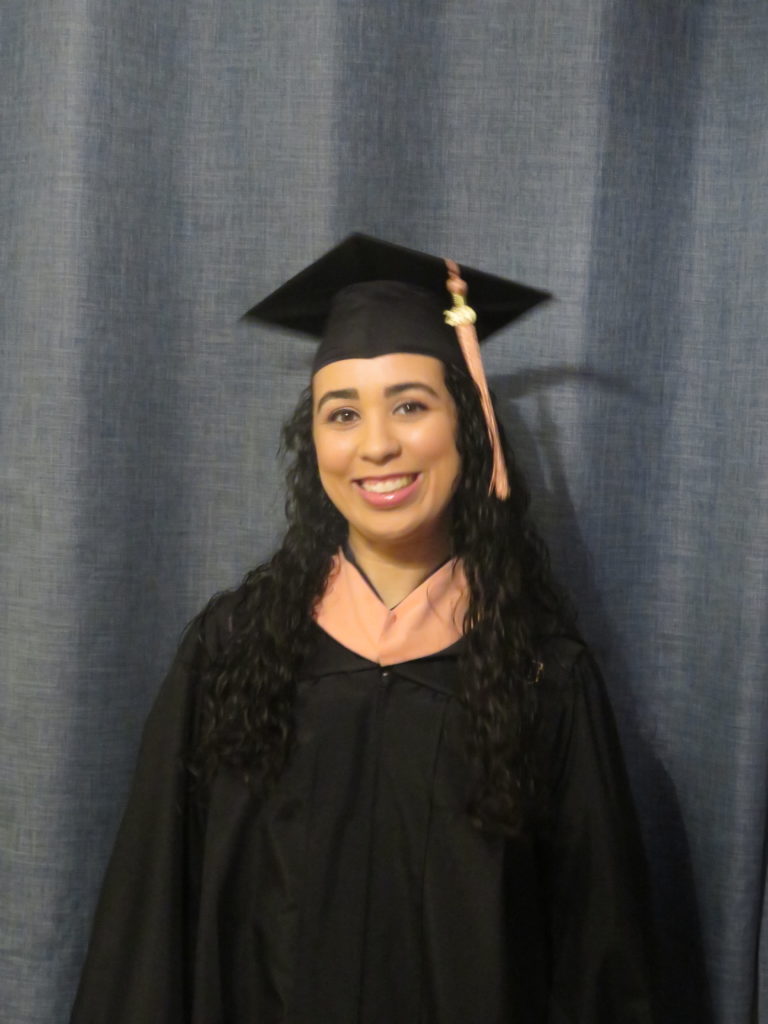Aida Ramon completed her Master of Public Health in Health Promotion and Disease Prevention with a concentration in Maternal and Child Health at the Robert Stempel College of Public Health & Social Work at Florida International University. Towards the end of her master’s program, Aida served as a full-time graduate student, mother of two, and worked full-time as a Community Health Educator at Miami-Dade Area Health Education Center. She also continued volunteering at the World Aids Museum and Educational Center (WAMEC), where she completed her practicum. Aida was an active member of the Leaders of Maternal and Child Health student club, where she organized several community-based service events that helped forge partnerships with agencies that served South Florida’s most vulnerable women, children, and adolescents. Aida graduated in Fall 2020 and was awarded the Dean’s Excellence Award in her concentration.

During her practicum at WAMEC, Aida took on a leadership role to redesign the museum’s prevention education to make it more compatible with the remote learning environment of the COVID-19 pandemic. She also diligently researched sexual health education policies throughout the nation and in her home state of Florida, where HIV and other STIs significantly impact adolescents and young adults. Through this research, it became clear that there was a missing link in addressing sexual health among youth.
Because sexual health education varies widely throughout the state, many disparities put youth at a disadvantage. Sexual health education is often not inclusive, which further stigmatizes Florida’s LGBT+ youth and negatively impacts their sexual health. It became evident that parents are an integral part of their children’s sexual health education. As many have said before, education starts in the home, which is especially true for sexual health. As a parent herself, this problem became even more evident to Aida, so she set out to develop a program that could help parents engage with their children about sexual health and empower them to make healthy choices. Parental involvement in their child’s sexual education would require improving communications skills and increasing the parents’ knowledge of sexual health topics. With guidance, Aida developed, pilot tested, and launched the first component on communicating with youth about sexual health. The next goal is to create and pilot test the second component: training and empowering parents to provide age-appropriate sexual health education at home to empower their children to make healthy choices while improving health outcomes.
She hopes that soon, she can refocus her efforts into advocating for inclusive, evidence-based, comprehensive sexual health education that begins early and continues into early adulthood, with more parental engagement in the schools’ education.
“I will share the same sentiment that I shared during my practicum. In my adolescence, my parents never really had a conversation with me about sexuality. Any information provided was vague and led me to seek answers from friends who were also ill-informed. The sexual health education that I was provided in school was predominantly abstinence-only. As a result, I didn’t know how to negotiate sexual situations, and I engaged in risky behaviors. I also never got tested until almost a decade after my sexual debut. I strongly feel that I would have made better choices regarding my sexual health had I been afforded the proper education. I promised myself that I wouldn’t let the same happen to my own children. My time at WAMEC has ignited this passion for helping our youth have the best possible chance of taking control of their sexual health. That means providing them accurate information and empowering them to make choices that promote the best health outcomes. I hope to continue to be active in this endeavor and start advocating for policies that will improve sexual health education and encourage parents to take on a more positive and active role. There is much work to be done.”

